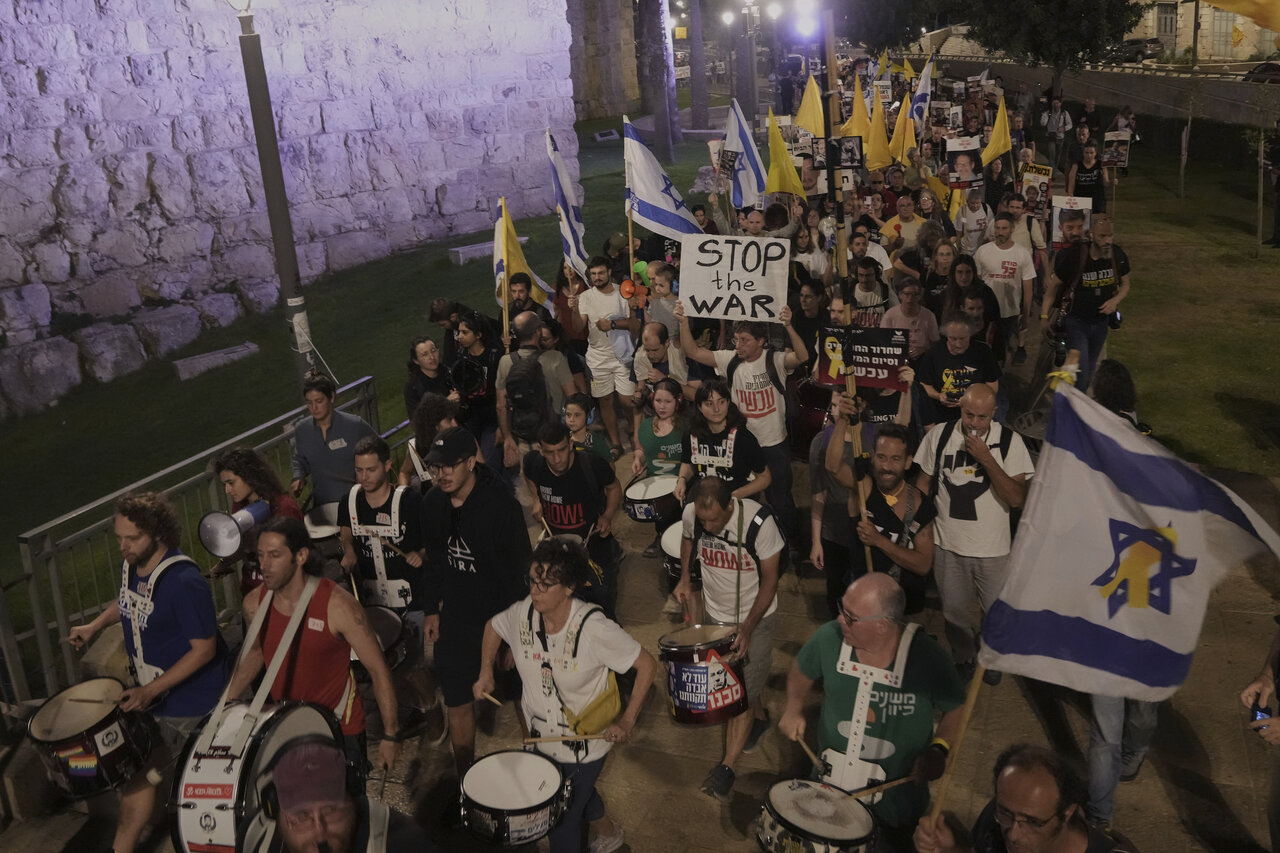As Gaza bleeds, protests reveal Israel's fractured leadership and moral decay

TEHRAN – Once again, Israelis have taken to the streets in protest, driven by the military’s strategic failures in Gaza and the collapse of government policies.
Saturday’s mass demonstrations — anchored in Tel Aviv and Jerusalem (al-Quds) and spurred this week after authorities cleared an encampment near Netanyahu’s Gaza Street residence — have been led by captive families who say the government values politics over rescue.
Relatives such as Einav Zangauker, Ofir Braslavski, and Anat Angrest have become visible symbols of public fury, demanding accountability and an end to what many see as catastrophic mismanagement.
Those protests were catalyzed by the latest, costly escalation: a renewed, large-scale ground offensive aimed at Gaza City, in which the military has committed additional divisions, including the 36th Armored Division, after pulling it from Khan Younis to prepare for urban combat.
The push has intensified bombardment and forced mass movement of civilians, contributing to what international agencies describe as catastrophic displacement.
The human toll is devastating. Reports estimate that more than 65,000 Palestinians have been killed in Gaza since October 2023, with hundreds of thousands more wounded or displaced. In recent days alone, dozens have died in single strikes, while entire neighborhoods have been emptied under evacuation orders.
Heartbreaking individual accounts — such as the reported death of three-year-old Habeeba Abu Shaar from malnutrition in Khan Younis on Sunday — highlight the collapse of civilian infrastructure and the ever-shrinking space for survival.
At the same time, Palestinian resistance operations continue. Rockets and projectiles fired from Gaza toward southern Israeli towns on Sunday and roadside attacks inside Gaza — most recently a bomb in Rafah that killed four Israeli soldiers — show both the persistence of militant capabilities and the human cost borne on both sides.
Those soldier deaths have reinforced domestic anger and grief even as strategic objectives remain unclear.
Crucially, dissent is not only on the streets. Senior security figures reportedly warned that the Gaza City operation lacked a clear post-war plan and raised alternatives — including captive-deal options — that were rejected by political leaders.
Israeli military Chief of Staff Eyal Zamir has warned that the military lacks clarity on “day-after” governance in Gaza, telling lawmakers that the government has not defined whether Israel intends to impose a military administration or pursue another model. His remarks, leaked from closed briefings, have underscored growing friction between the army and the political leadership and deepened public unease about the war’s trajectory.
The political consequences are increasingly visible. Opposition leader Yair Lapid has accused the government of strategic bankruptcy and moral failure, while former prime ministers Ehud Olmert and Ehud Barak have condemned the campaign and urged a rethink.
Their interventions, combined with the recent recognition of Palestine by several Western nations — including the United Kingdom, Canada, and Australia— have amplified the perception that Prime Minister Benjamin Netanyahu’s coalition is steering Israel toward isolation and long-term peril. His wartime defiance is seen as tied not only to policy but also to his own political survival, as ongoing corruption trials threaten prison for him and his wife.
Finally, infighting over elections and procedure has become a second front. Former PM Naftali Bennett insists elections must go ahead and urged officials to resist political interference; ministers have replied with bitter, sometimes personal attacks on social media. Far right National Security Minister Itamar Ben Gvir mocked him directly: “Naftali, we are not stealing the elections — that’s your expertise.”
That scramble — threats to delay elections, public barbs from cabinet members and rival campaigns — corrodes legitimacy at the very moment Israel most needs coherent policy and national unity.
This is not merely an operational failure: it is a political one. A strategy that produces mass civilian suffering, entrenched resistance, and deep institutional division cannot claim long-term security.
Leave a Comment